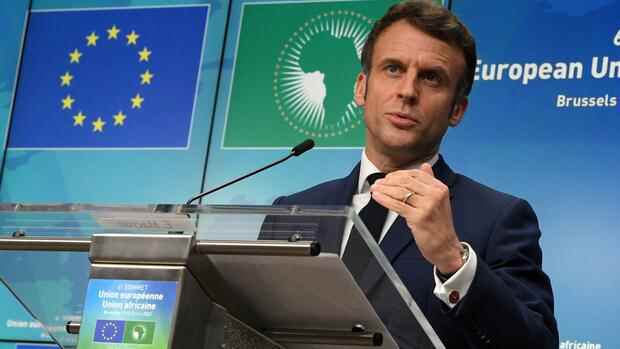Le Pen calls for a clear rejection of Ukraine’s NATO membership. In her interviews, she said that the country “belongs to the Russian sphere of influence” and “one must recognize Crimea’s integration into Russian territory.” When it comes to Russian action in the separatist regions of Donetsk and Luhansk, she distances herself somewhat: Putin’s “act of escalation” is “really regrettable,” she said.
The links between Le Pen’s Rassemblement National and Russia have always raised questions in France. In 2014, a Russian bank gave the party, which at the time still operated under the name Front National, a loan of around nine million euros. In the 2017 French election campaign, Le Pen was received by Putin in the Kremlin. Even her father and party founder Jean-Marie Le Pen was a welcome guest in Moscow.
Top jobs of the day
Find the best jobs now and
be notified by email.
Zemmour, who is stirring up the French election campaign with a newly founded right-wing nationalist movement, also shows understanding for Putin. He told the newspaper “Le Figaro” on Tuesday that Russia had violated Ukraine’s sovereignty and was therefore responsible. But the crisis was also “the result of Western and NATO policies, which have always ignored Russia’s legitimate security concerns.”
Criticism of Macron’s crisis diplomacy
In the event of an election victory, Zemmour said he would support an end to NATO expansion and a “solution to the territorial conflicts in Eastern Europe.” In previous interviews he described Putin as a “Russian patriot” and “great head of state”.
Pollsters see both Le Pen and Zemmour as possible candidates in a runoff against Macron, who is ahead in the polls for the first round on April 10. The third possible challenger is currently Valérie Pécresse, the conservative-bourgeois Republican candidate. Like Macron, she takes a tough stance on Putin and supports EU sanctions.
The conservative-bourgeois Republican candidate criticizes Macron’s crisis diplomacy.
(Photo: dpa)
At the same time, Pécresse takes issue with the president’s crisis diplomacy: Macron wanted to present himself in the domestic election campaign, but was exploited by Putin. Instead of the “solitary dialogue” with the Russian head of state, he should have gone to Moscow together “with the German Chancellor and representatives of the European Union”.
Criticism of Macron’s crisis policy also comes from the fragmented left camp, which is unlikely to play a role in the outcome of the election. Some of these candidates are in line with the right-wing politicians Zemmour and Le Pen with their accusations against NATO: The left-wing populist Jean-Luc Mélenchon, who is fifth in the polls, commented on the crisis by saying that France had “no interest in expanding the military dominance of the USA and its interests on our continent”.
The Élysée Palace, however, rejects the accusation of diplomatic solo efforts. Macron coordinated very closely with Chancellor Olaf Scholz (SPD) and other Western allies. But the prominent role of the French president could become a problem for him if a diplomatic solution fails. Most recently, Macron had dodged the question of when he would finally officially start the election campaign as a candidate, referring to the “current geopolitical crisis”.
Le Maire: Little foreign trade with Russia
Macron’s environment said that Putin called at least briefly before announcing the recognition of the separatist areas in eastern Ukraine. But the anger at the Russian President is great: Putin has broken his word to Macron and also his promises made in public speeches, says a senior adviser to the French head of state.
Macron’s center government is now calling for tough European sanctions – but wants to keep the impact on consumers and companies during the election campaign to a minimum. Finance and Economy Minister Bruno Le Maire said only 1 percent of French exports went to Russia. When it comes to imports, Russia accounts for less than two percent.
Local companies with business ties to Russia will be supported, said Le Maire. And he made it clear that the state cap on gas prices introduced last autumn due to rising energy costs will be continued “under all circumstances”.
More: “Putin seems paranoid”: The West condemns the Russian President’s escalation in Ukraine
